December 18, 2025 | 22:29 GMT +7
December 18, 2025 | 22:29 GMT +7
Hotline: 0913.378.918
December 18, 2025 | 22:29 GMT +7
Hotline: 0913.378.918
Established in 1988, the Naganuma Agricultural Research Institute, under the Hokuren Federation of Agricultural Cooperatives, manages a 20.8-hectare experimental field with a team of over 50 staff members. The institute focuses on key areas such as developing rice, potato, and vegetable varieties; testing new crop strains; and applying RTK satellite positioning technology to mechanize and automate cultivation processes.
At the Naganuma Agricultural Research Institute, Acting Minister Tran Duc Thang and his delegation were introduced to research programs on crop varieties, high-tech applications in production, and sustainable farming models.
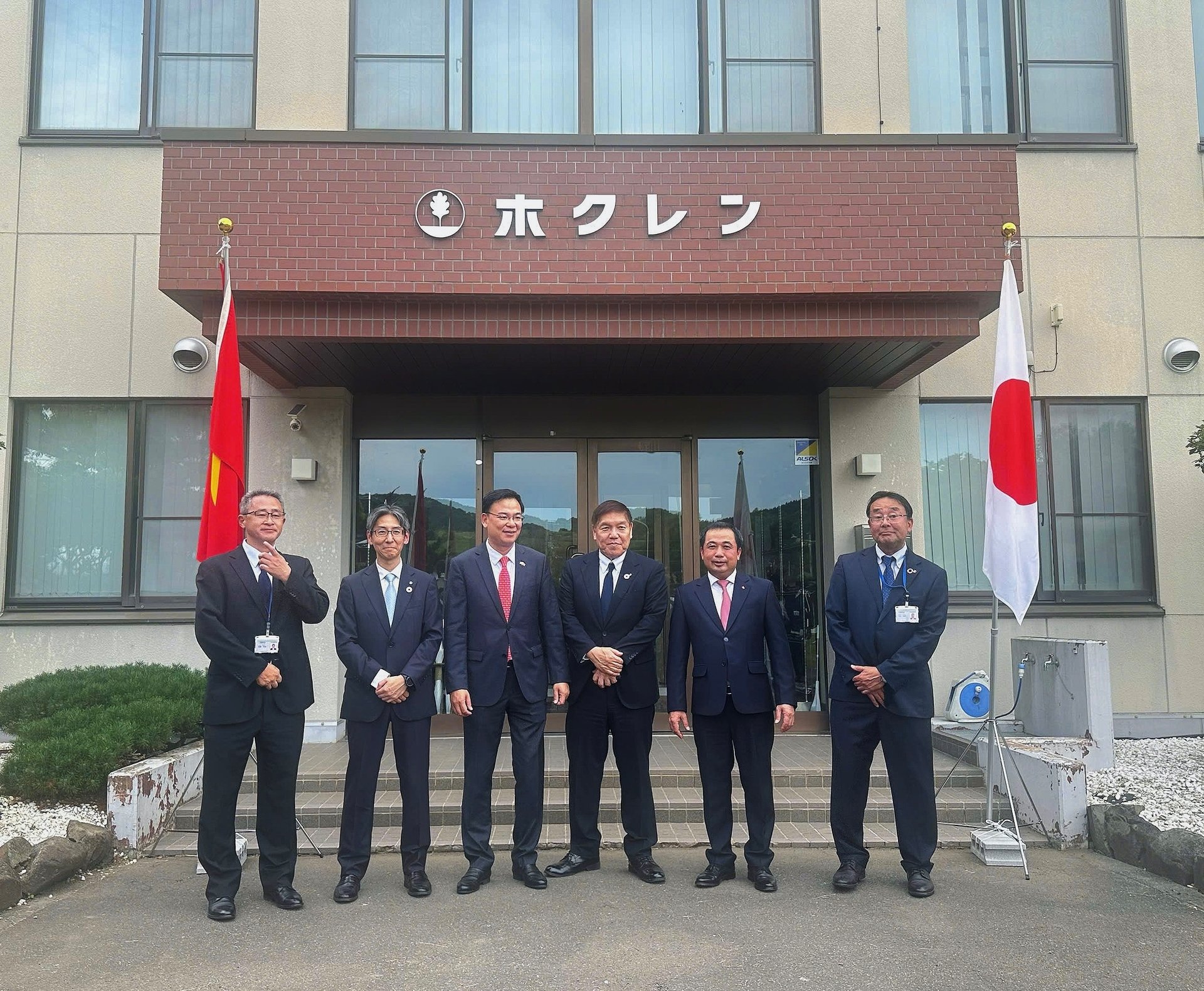
Acting Minister Tran Duc Thang (second from right) visits the Naganuma Agricultural Research Institute, Hokuren. Photo: ICD.
One of the most notable technologies deployed at the Naganuma Agricultural Research Institute is the RTK (Real Time Kinematic) satellite positioning system. This advanced system provides automatic control capabilities for agricultural machinery, enabling positioning accuracy within just a few centimeters.
By using RTK, farmers can operate plows, seeders, and sprayers with precise, uniform spacing across fields. This not only optimizes the use of seeds, fertilizers, and agrochemicals, but also significantly enhances labor efficiency and overall productivity.
The RTK network established by Hokuren covers the entirety of Hokkaido, with each station providing coverage within a radius of approximately 20 kilometers. Through an Internet connection, correction data is transmitted in real time, ensuring consistent and reliable operation regardless of weather or field conditions. By 2025, roughly 71 agricultural cooperatives (JA) are participating in the system, with over 8,400 registered IDs. This widespread adoption highlights both the practical value and the transformative impact of RTK technology on modern agriculture in Hokkaido.
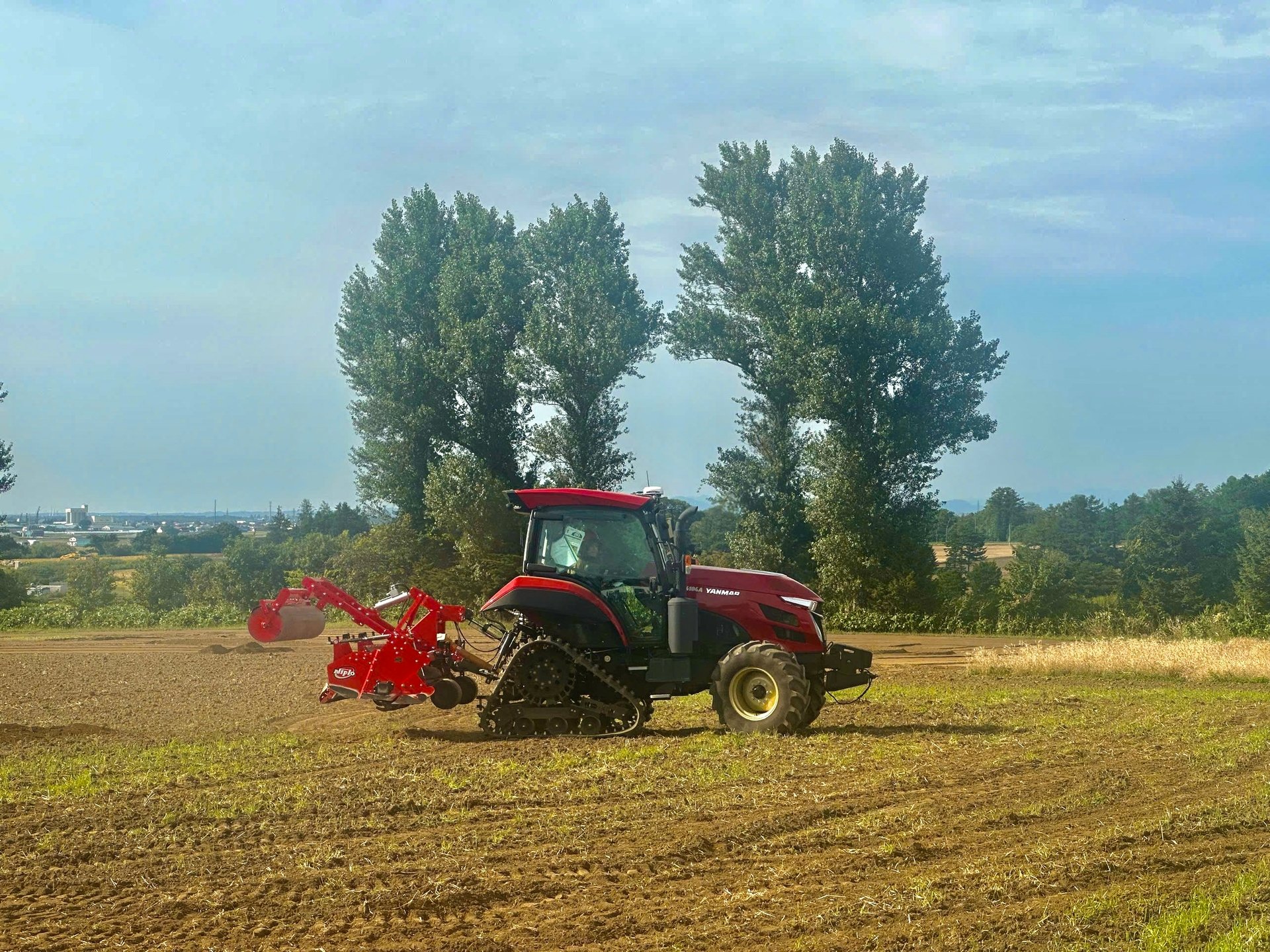
Hokkuren applies RTK satellite positioning technology to mechanize and automate cultivation processes. Photo: ICD.
In addition to applying RTK technology in open fields, the Naganuma Agricultural Research Institute has been actively developing a range of smart farming models within controlled greenhouse environments. Their hydroponic systems are equipped with advanced sensors and automated control devices, allowing precise management of environmental factors such as temperature, light, and humidity. This level of technological support enables even farmers with limited experience to cultivate high-quality crops efficiently and cost-effectively.
During experimental trials, the institute implements a variety of advanced cultivation techniques. For example, eggplants are grown in isolated pots to prevent the spread of soil-borne pests, while cherry tomatoes are cultivated using a bottom-up irrigation system that optimizes fertilizer usage and minimizes wastewater. Moreover, the use of drones for pesticide application has been introduced, which not only enhances spraying accuracy but also reduces exposure and risks for farm workers.
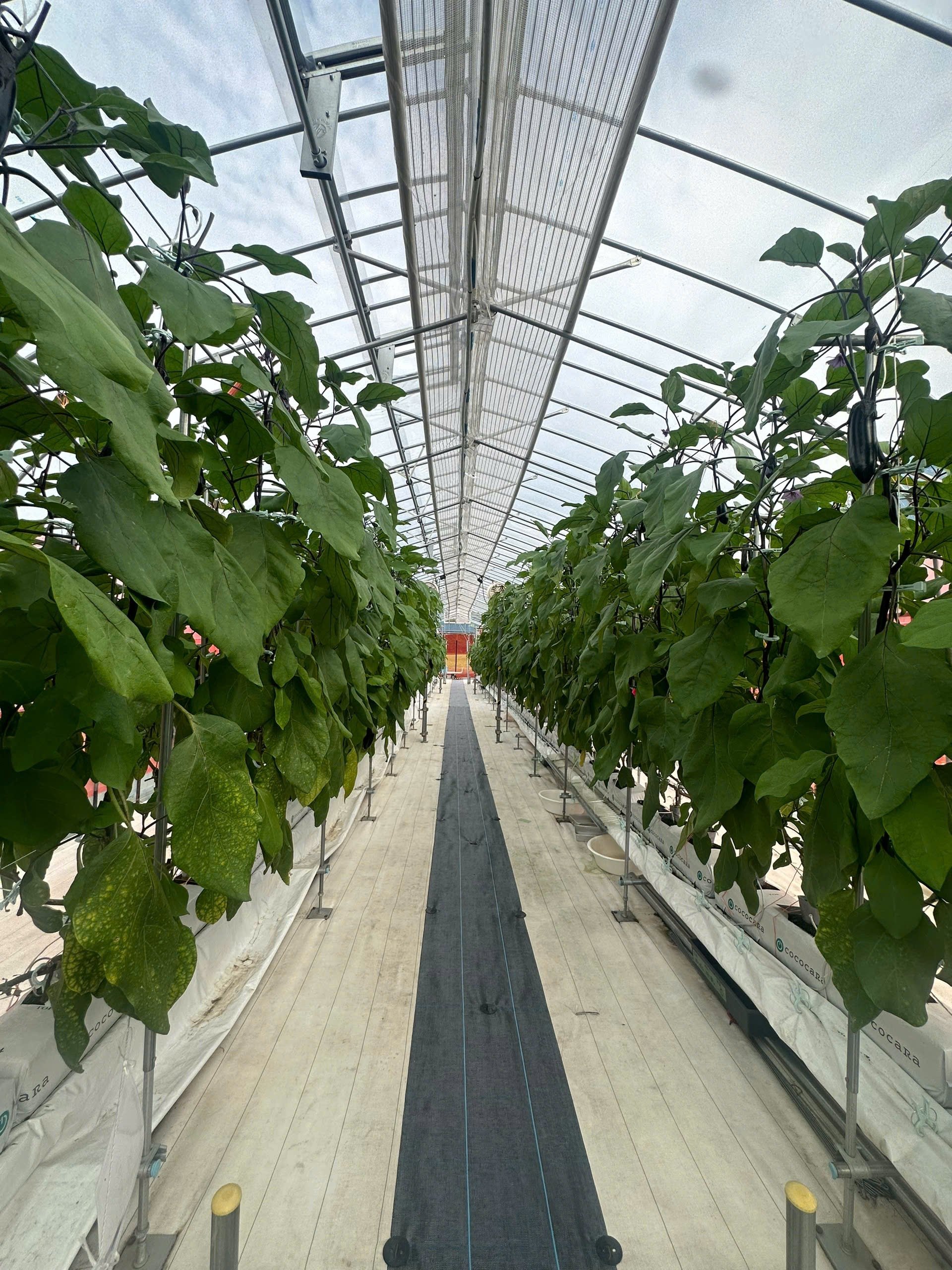
The Naganuma Institute operates hydroponic greenhouses equipped with sensors that automatically control temperature, light, and humidity. Photo: ICD.
On the same day, the delegation visited Komatani Farm in Naganuma Town. Spanning around 100 hectares, the farm produces a wide variety of crops, including rice, potatoes, pumpkins, onions, red beans, soybeans, and wheat, demonstrating a highly diversified agricultural system.
What sets Komatani apart is its commitment to a natural circular agriculture model. The farm emphasizes nurturing soil fertility, maintaining ecological balance, and protecting the local ecosystem. By integrating crop rotation, organic matter recycling, and environmentally friendly cultivation practices, Komatani not only ensures sustainable production but also serves as a model for modern, eco-conscious farming in Hokkaido.
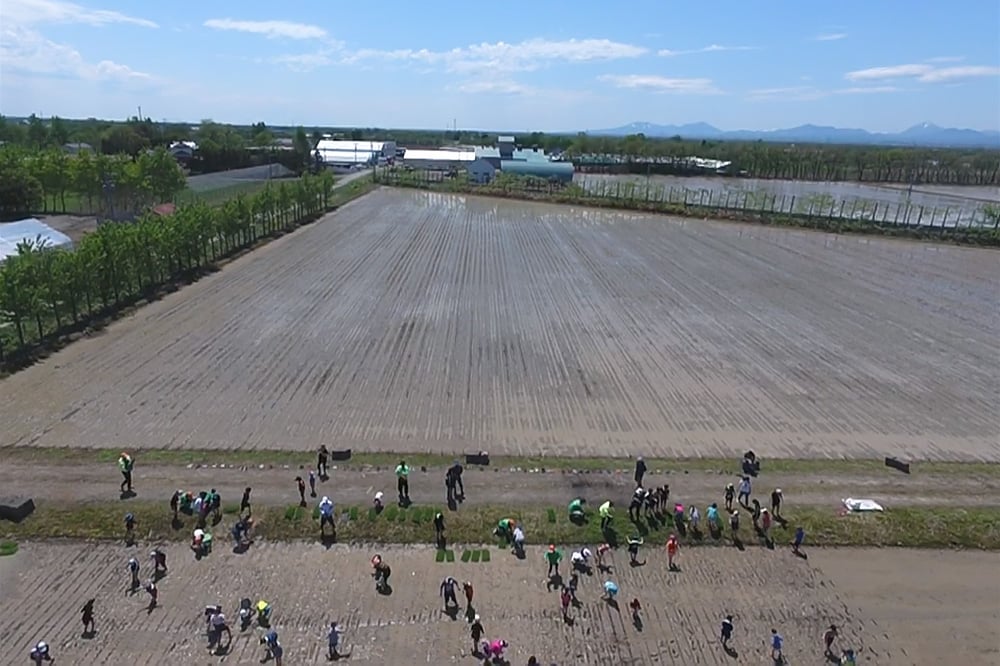
Komatani Farm applies a natural circular agriculture model, focusing on soil health and ecosystem protection. Photo: Komatani Farm.
“The farm strictly limits the use of chemical pesticides and places a strong emphasis on using well-composted organic fertilizers derived from livestock by-products and straw. This practice enriches the soil with beneficial microorganisms, creating a healthy and fertile environment that allows crops to grow naturally and develop their characteristic sweet flavor.
Beyond supporting crop quality, this method also promotes a balanced and thriving ecosystem. By maintaining a habitat favorable to various organisms, including dragonflies, spiders, frogs, and sparrows, the farm ensures that agricultural production coexists harmoniously with local biodiversity. This approach reflects a commitment not only to food safety and sustainability but also to preserving the ecological integrity of the surrounding environment,” the farm owner explained.
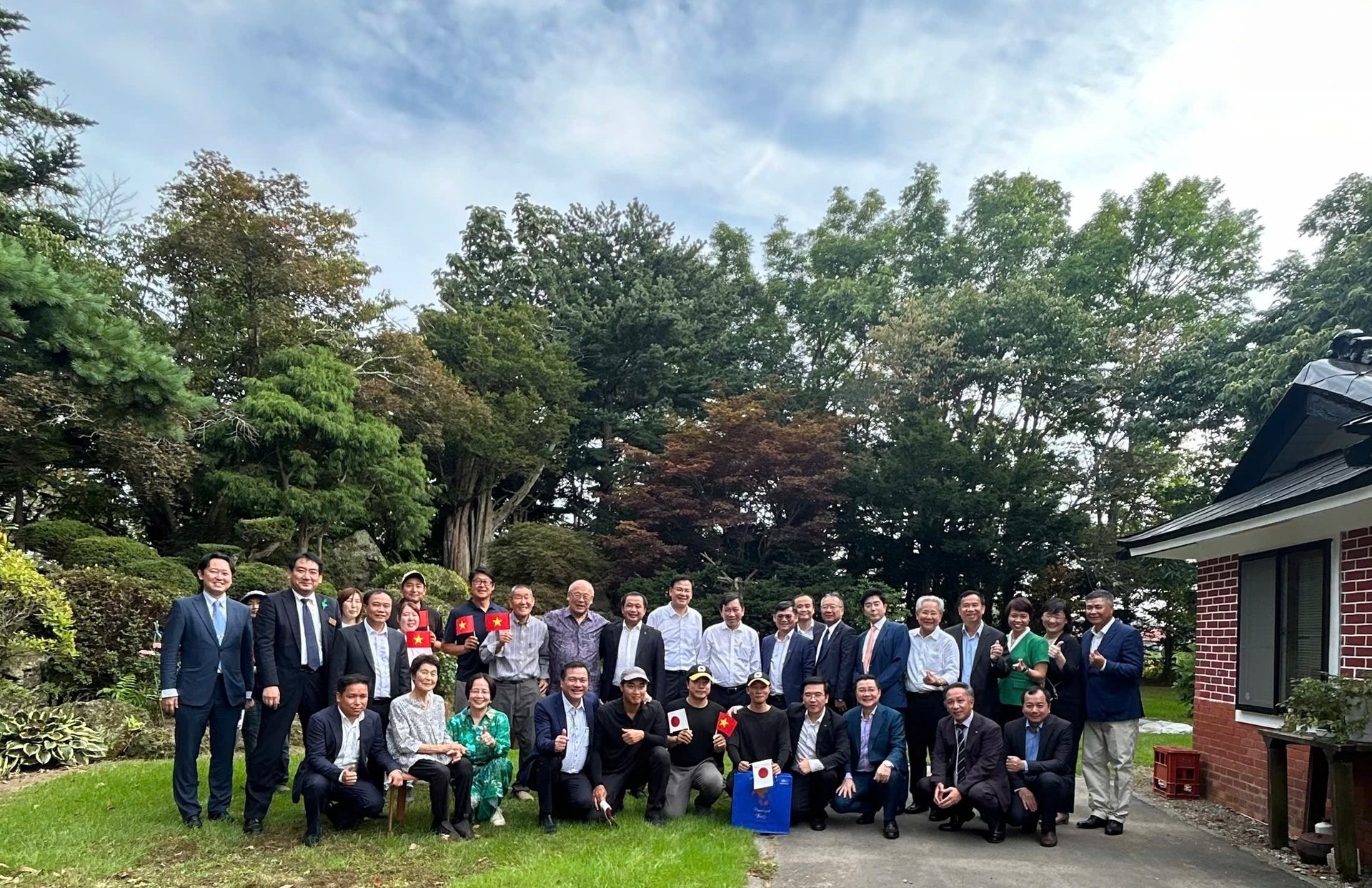
Acting Minister Tran Duc Thang and his delegation pose for a commemorative photo at Komatani Farm. Photo: ICD.
Komatani Farm currently hosts three Vietnamese trainees who are studying and working on-site. During the visit, Acting Minister Tran Duc Thang personally met with and encouraged the trainees, emphasizing that this represents an important practical model for expanding the agricultural human resource training program between Vietnam and Japan.
Translated by Phuong Linh

(VAN) Cuba is currently streamlining procedures to attract investors, with many new policies shaped by the practical experiences of Vietnamese projects operating in the country.

(VAN) Patrol Team No. 15 has been executing patrol, inspection, and control duties in the Southwest waters, a region identified as having a high risk of violations.

(VAN) UNICEF, IOM, and the U.S. Department of State have worked together to ensure the justice system becomes a protective shield for children and other vulnerable groups.

(VAN) As a key driving force of green transition, the circular economy is being identified as a strategic pillar of Viet Nam's new growth model.

(VAN) UNICEF and IOM receive this aid and provide essential services to assist families affected by recent storms and floods.

(VAN) Circular economy is regarded as a suitable pathway for Viet Nam’s fisheries sector, helping to improve production efficiency, optimize resources, and reduce environmental pressure.

(VAN) Vietnam and the UK are promoting cooperation in agriculture, environment, renewable energy, and green transition, with the goal of achieving Net Zero.